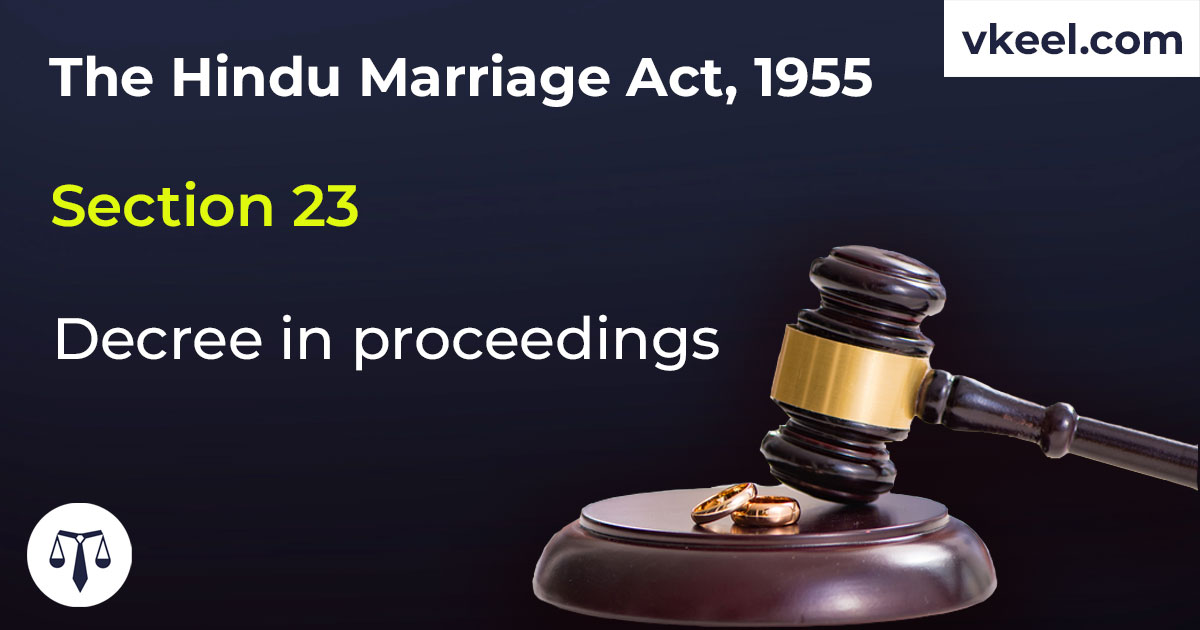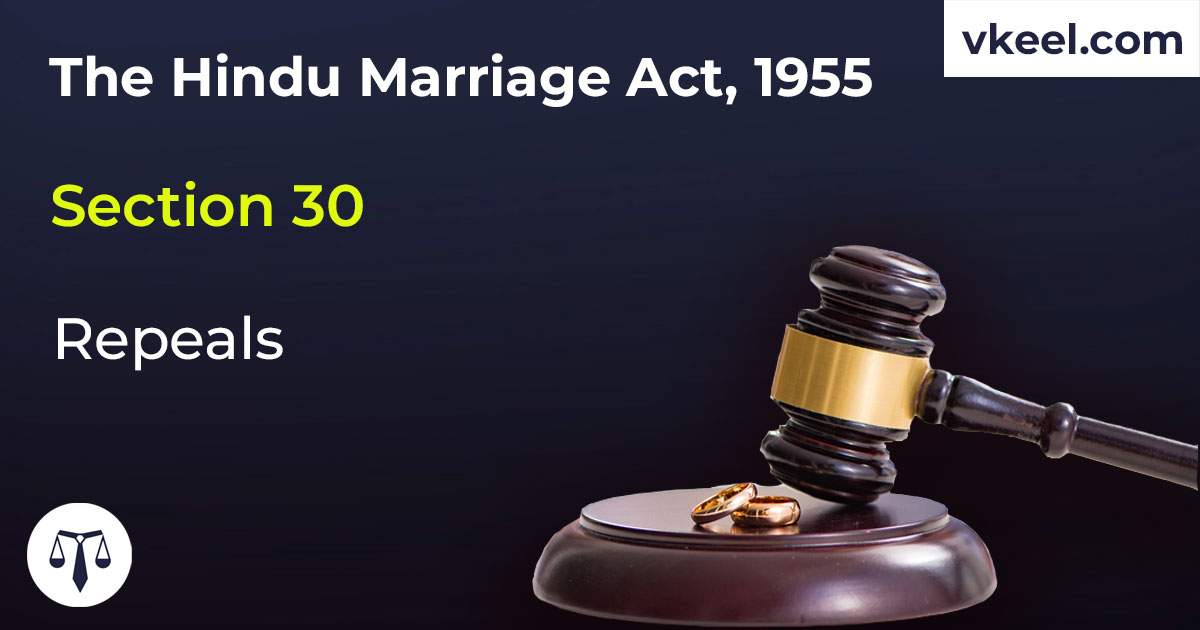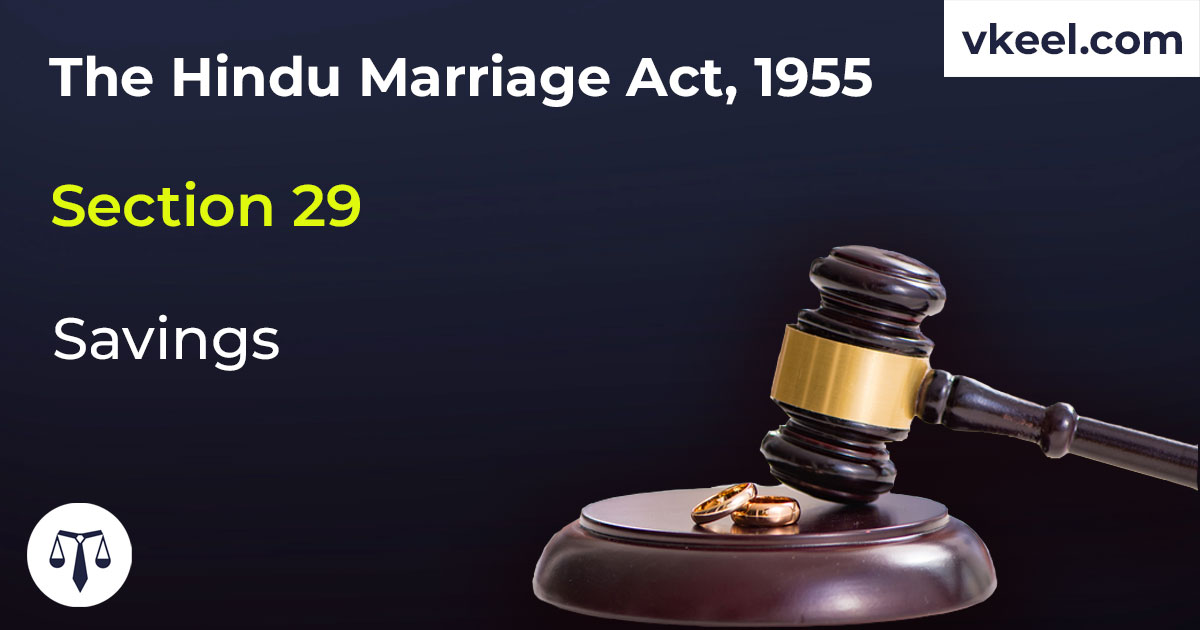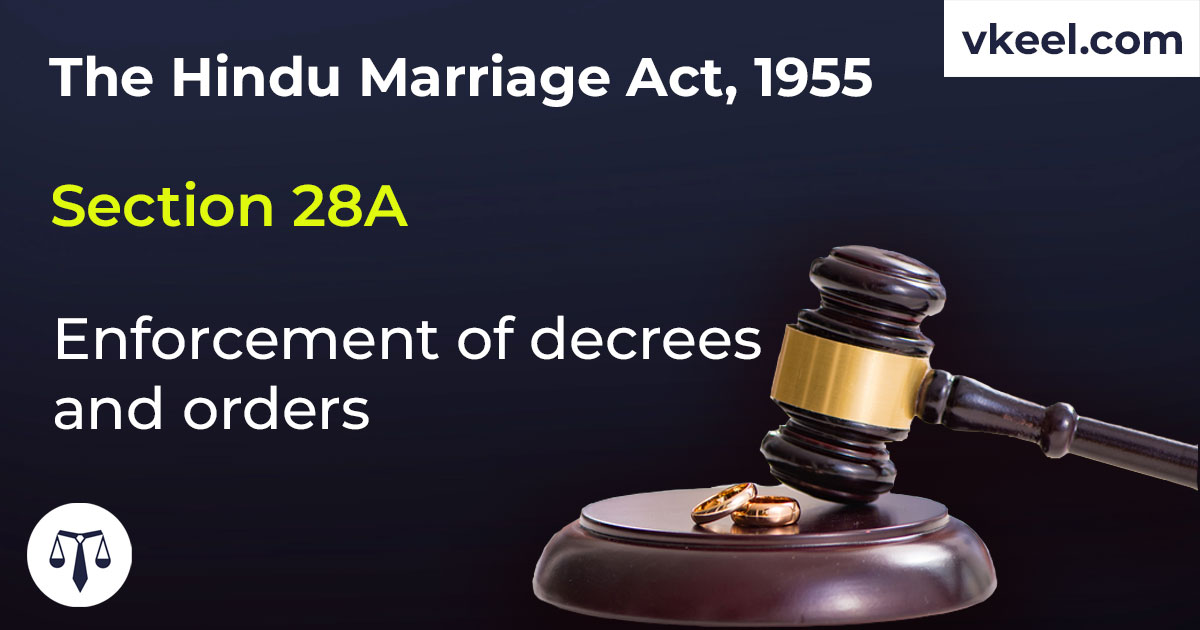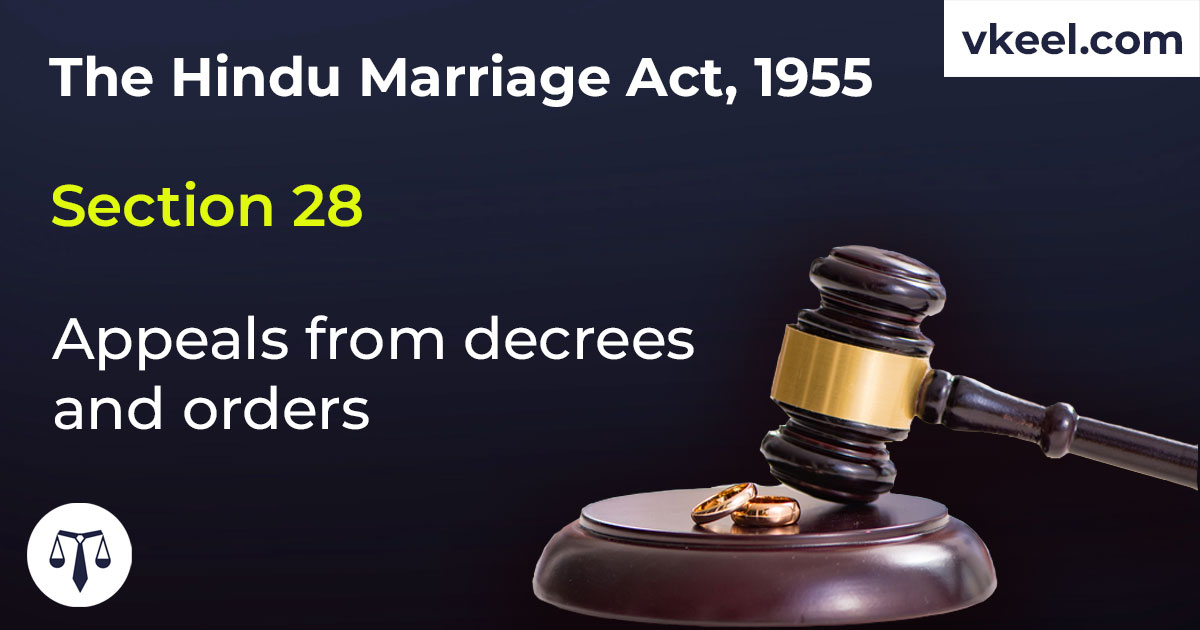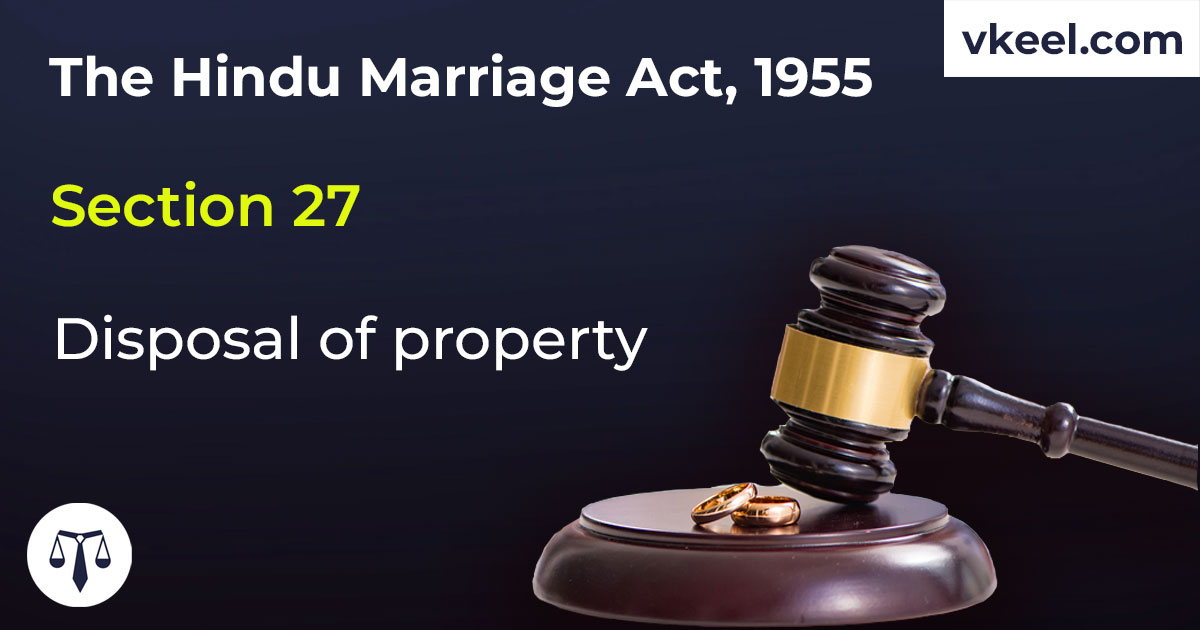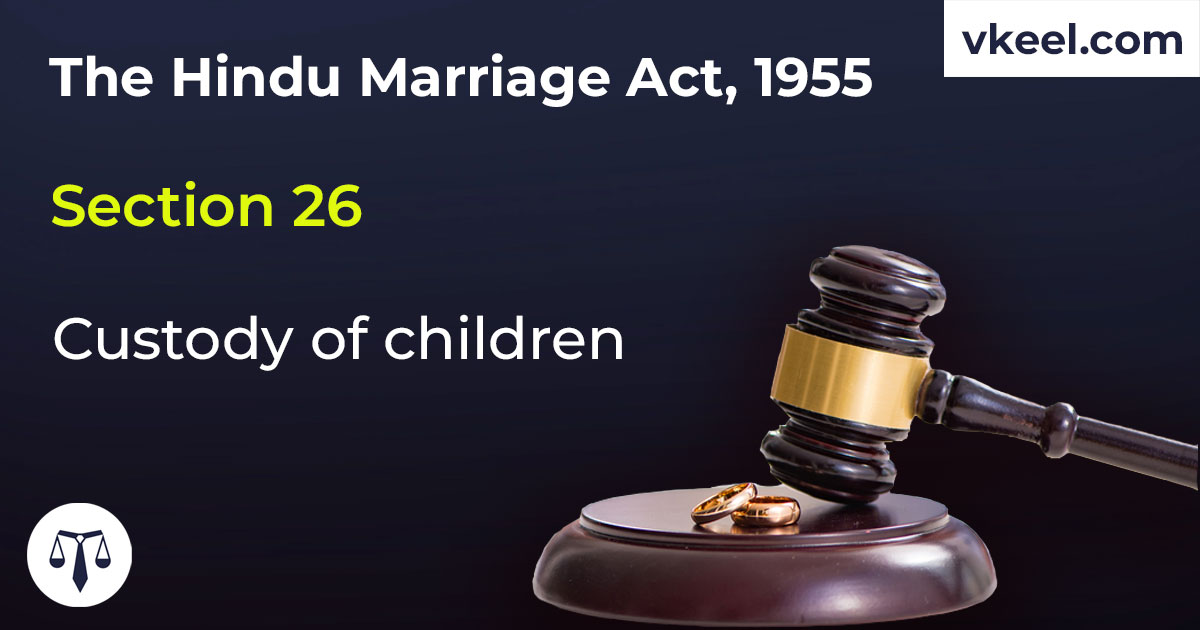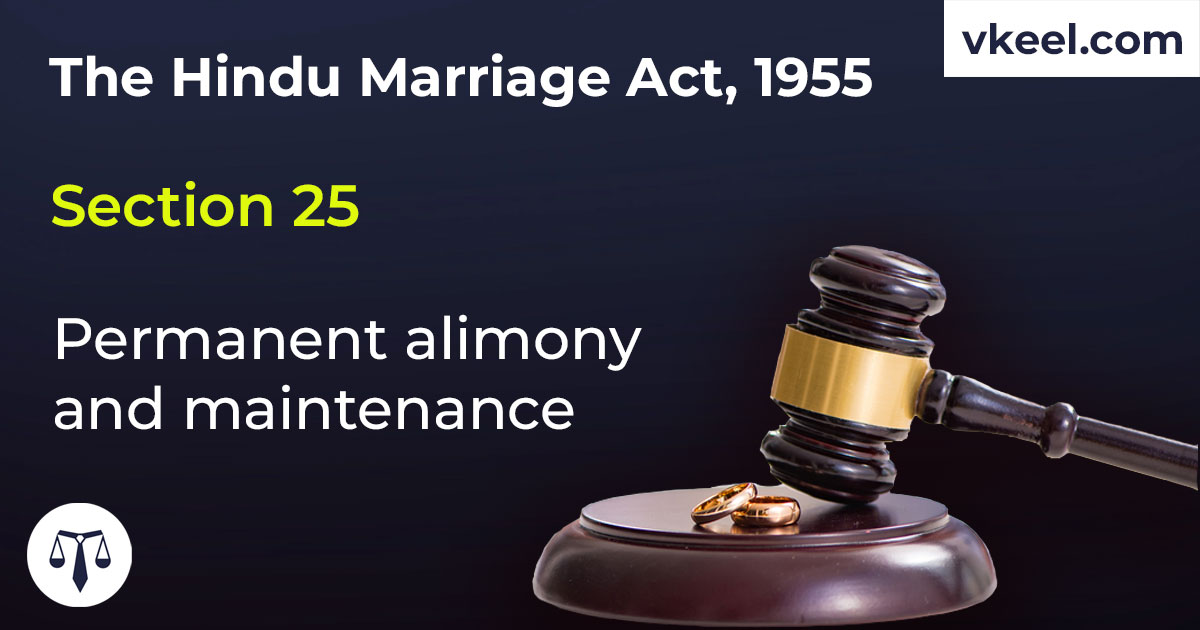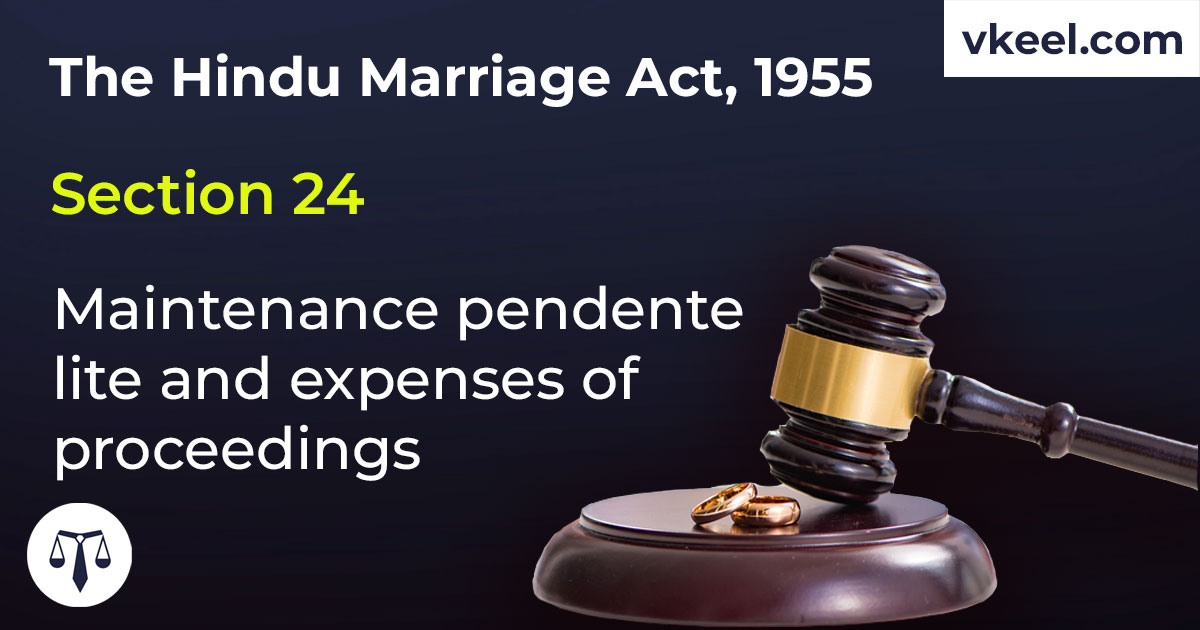Section 23 Hindu Marriage Act 1955 – Decree in proceedings
By Vkeel Team
Table of Contents
Description
“Section 23 Hindu Marriage Act 1955”
(1) In any proceeding under this Act, whether defended or not, if the court is satisfied that
(a) any of the grounds for granting relief exists and the petitioner 1[except in cases where the relief is sought by him on the ground specified in sub-clause (a), sub-clause (b) or sub-clause (c) of clause (ii) of section 5] is not in any way taking advantage of his or her own wrong or disability for the purpose of such relief, and
(b) where the ground of the petition is the ground specified 2* * * in clause (i) of sub-section (1) of section 13, the petitioner has not in any manner been accessory to or connived at or condoned the act or acts complained of, or where the ground of the petition is cruelty the petitioner has not in any manner condoned the cruelty, and
1[(bb) when a divorce is sought on the ground of mutual consent, such consent has not been obtained by force, fraud or undue influence, and]
(c)3[the petition (not being a petition presented under section 11)] is not presented or prosecuted in collusion with the respondent, and
(d) there has not been any unnecessary or improper delay in instituting the proceeding, and
(e) there is no other legal ground why relief should not be granted, then, and in such a case, but not otherwise, the court shall decree such relief accordingly.
(2) Before proceeding to grant any relief under this Act, it shall be the duty of the court in the first instance, in every case where it is possible so to do consistently with the nature and circumstances of the case, to make every endeavour to bring about reconciliation between the parties:
4[Provided that nothing contained in this sub-section shall apply to any proceeding wherein relief is sought on any of the grounds specified in clause (ii), clause (iii), clause (iv), clause (v), clause (vi) or clause (vii) of sub-section (1) of section 13.]
5[(3) For the purpose of aiding the court in bringing about such reconciliation, the court may, if the parties so desire or if the court thinks it just and proper so to do, adjourn the proceedings for a reasonable period not exceeding fifteen days and refer the matter to any person named by the parties in this behalf or to any person nominated by the court if the parties fail to name any person, with directions to report to the court as to whether reconciliation can be and has been, effected and the court shall in disposing of the proceeding have due regard to the report.
(4) In every case where a marriage is dissolved by a decree of divorce, the court passing the decree shall give a copy thereof free of cost to each of the parties.]
Role of Section 23 Hindu Marriage Act 1955
The Hindu Marriage Act 1955 is a law that governs the marriage of Hindus in India. It provides for the registration of marriages, the grounds for divorce, and other matters related to marriage. Section 23 of the Act is an important provision that deals with the proceedings of the Hindu Marriage Act.
Section 23 of the Act states that no marriage shall be declared void or voidable on the ground of any defect in the consent of either party, unless it is shown that such consent was obtained by force, fraud, or undue influence. This means that if either party to the marriage has given their consent to the marriage, then the marriage is valid and cannot be declared void or voidable on the basis of any defect in the consent.
Section 23 is a court order issued by the court in proceedings of the Hindu Marriage Act. This decree is issued when the court finds that either party to the marriage has given their consent to the marriage under duress, fraud, or undue influence. The court may also issue the decree if it finds that either party was not of sound mind or was under the age of 18 at the time of the marriage.
Section 23 is an important provision of the Hindu Marriage Act as it ensures that marriages are not declared void or voidable on the basis of any defect in the consent of either party. It also ensures that marriages are not entered into under duress, fraud, or undue influence. Section 23 is an important tool for protecting the rights of both parties to the marriage and ensuring that marriages are entered into with full consent and understanding.
Legal Implications of Section 23 Hindu Marriage Act 1955
Section 23 Hindu Marriage Act 1955 down certain grounds on which a marriage can be declared null and void. These grounds are:
1. If either party to the marriage was already married at the time of the marriage.
2. If either party was incapable of giving valid consent to the marriage due to unsoundness of mind.
3. If the consent of either party was obtained by fraud or force.
4. If either party was suffering from a mental disorder of such a kind or to such an extent as to be unfit for marriage and the procreation of children.
5. If either party was suffering from a communicable venereal disease in a communicable form.
6. If either party was subject to recurrent attacks of insanity.
The legal implications of Section 23 Hindu Marriage Act 1955 are significant. This section provides a legal basis for the dissolution of a marriage on the grounds of any of the above-mentioned conditions. It is important to note that the burden of proof lies on the petitioner, who must provide evidence to support their claim. The court may also consider other relevant factors such as the duration of the marriage, the conduct of the parties, and the financial and emotional impact of the dissolution.
In addition, Section 23 also provides for the right of the aggrieved party to seek maintenance from the other party. This is an important provision as it ensures that the aggrieved party is not left destitute after the dissolution of the marriage.
In conclusion, Section 23 Hindu Marriage Act 1955 is an important provision that provides legal protection to parties in the event of a marriage being declared null and void. It is important to note that the burden of proof lies on the petitioner and that the court may consider other relevant factors before granting a decree of dissolution. Furthermore, the aggrieved party is also entitled to seek maintenance from the other party.
1. Ins. by s. 16, ibid. (w.e.f. 27-5-1976).
2. The words, bracket, letter of figure in clause (f) of sub-section (1) of section 10 or omitted by s. 16, ibid. (w.e.f. 27-5-1976).
3. Subs. by s. 16, ibid., for the petition (w.e.f. 27-5-1976).
4. Added by s. 16, ibid. (w.e.f. 27-5-1976).
5. Ins. by Act 68 of 1976, s. 16 (w.e.f. 27-5-1976)
Description Source: indiacode
Disclaimer:
The information provided in the article is for general informational purposes only, and is not intended to constitute legal advice or to be relied upon as a substitute for legal advice. Furthermore, any information contained in the article is not guaranteed to be current, complete or accurate. If you require legal advice or representation, you should contact an attorney or law firm directly. We are not responsible for any damages resulting from any reliance on the content of this website.

